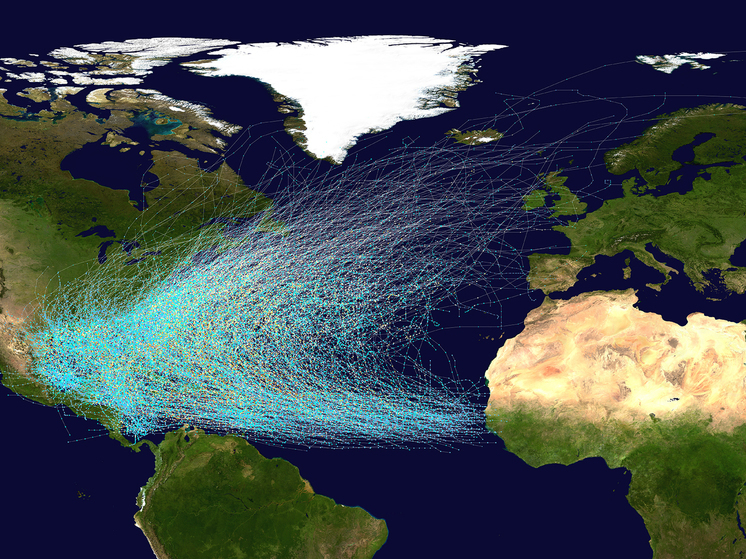«This is a really big danger, and we must do everything possible to avoid it»
A new study suggests that a key current system in the Atlantic Ocean could collapse as early as the 2030s – with dire consequences for the entire Earth.

A vital Atlantic Ocean current system that influences weather around the world could collapse as early as the late 2030s, a planet-wide catastrophe that would alter weather and climate, scientists have suggested in a new study.
According to CNN, several studies in recent years have suggested that the crucial system, the Atlantic Meridional Overturning Circulation, or AMOC, could be on the brink of collapse, weakened by rising ocean temperatures and salinity disruptions caused by human-caused climate change.
But a new study, which is undergoing peer review and has not yet been published in a journal, uses a state-of-the-art model to estimate the possible collapse, suggesting that the shutdown could occur between 2037 and 2064.
The study shows that it is likely to collapse by 2050.
“This is really worrying,” says René van Westen, a marine and atmospheric researcher at Utrecht University in the Netherlands and a co-author of the study.
“All the negative side effects of man-made climate change will still be present, such as increased heat waves, droughts and floods,” he told CNN. “Then, if on top of that there is a massive economic collapse… The climate will become even more distorted.”
Like a conveyor belt, the AMOC takes warm surface water from the Southern Hemisphere and the tropics and distributes it across the cold North Atlantic. The colder, saltier water then sinks and flows south. This mechanism keeps parts of the Southern Hemisphere from overheating and parts of the Northern Hemisphere from becoming too cold by distributing nutrients that support life in marine ecosystems, CNN explains.
The effects of an AMOC collapse would leave parts of the globe unrecognizable.
In the decades following the collapse, the Arctic ice will begin to creep south, and within 100 years it will extend as far as the southern coast of England. Average temperatures in Europe will drop, as will those in North America, including parts of the United States. In the Amazon rainforest, the seasons will completely reverse, with the current dry season giving way to rainy months and vice versa.
“This is a really big danger, and we must do everything we can to avoid it,” says Stefan Rahmstorf, a physical oceanographer at the University of Potsdam in Germany, who was not involved in the latest research.
To reach their conclusions, the Utrecht scientists used state-of-the-art models and, for the first time, identified a region of the South Atlantic Ocean as the optimal location to monitor changes in circulation and use observational data. They studied ocean temperatures and salinities in these locations to confirm previous predictions of when the AMOC might reach its tipping point.
The focus on the timing of collapse in ocean research is a relatively new development, Rahmstorf says. But it shows how far scientists have come in understanding the weakening of the AMOC.
“A few years ago, we were talking about whether this was going to happen, as a kind of low-probability, high-consequence risk,” Rahmstorf told CNN. “And now it looks a lot more likely than it did just a few years ago. Now people are starting to guess when it’s going to happen.”
Rahmstorf said that about five years ago he would have agreed that an AMOC collapse this century was unlikely, although even a 10 percent risk was still unacceptably high “for something of this magnitude to be catastrophic.”
“There are now basically five papers that suggest it could very well happen this century or even before the middle of the century,” Rahmstorf said. “My overall assessment is that the risk that we’ll pass the tipping point this century is probably even greater than 50 percent now.”
Despite the rapid advances in AMOC research and the rapid development of models that attempt to predict its collapse, they are still not without problems.
For example, the models do not account for a critical factor in the AMOC’s demise: the melting of Greenland ice. Huge volumes of fresh water are leaving the ice sheet and flowing into the North Atlantic, disrupting one of the driving forces of the circulation — salt water.
“You’re already getting a huge influx of fresh water into the North Atlantic, which could completely disrupt the system,” Rahmstorf said.
This gap in research means that projections may underestimate how soon or how quickly the collapse will occur, Rahmstorf said.























































Свежие комментарии